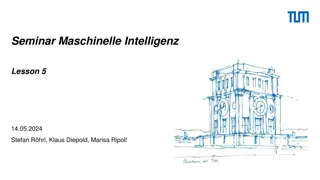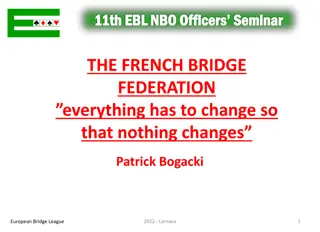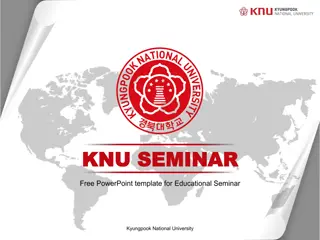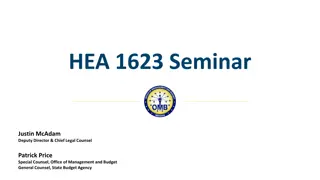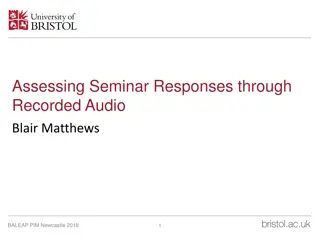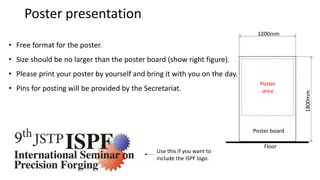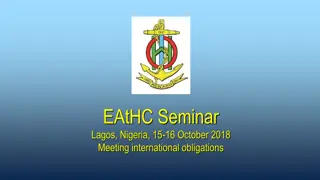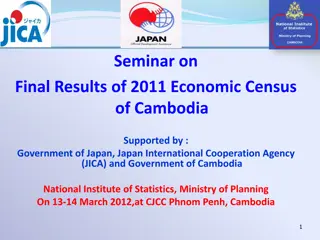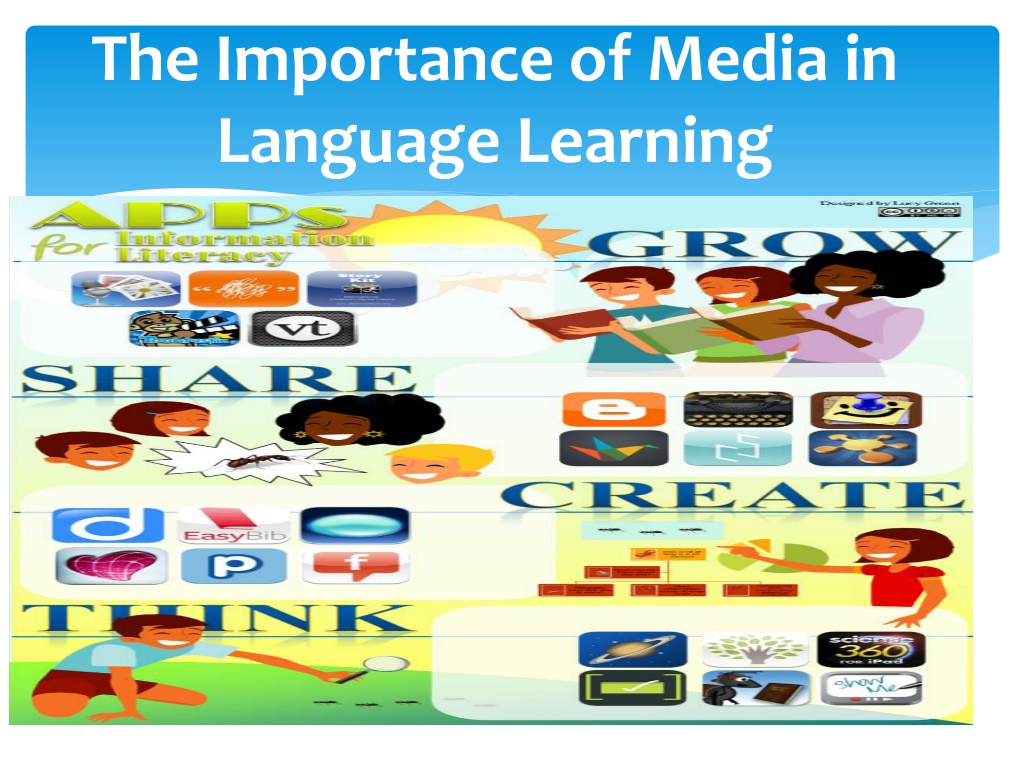
Role of Media in Language Learning: A Comprehensive Overview
Discover the significance of media in language learning, how it raises awareness of linguistic structures and societal ideologies. Explore practical reasons why media language attracts linguists, its impact on language use and attitudes, and its role as a social institution. Media provides easily accessible language data for research, shapes cultural expressions, and offers a platform for engaging with native speakers. Embrace the opportunities media presents for second language learners in a globalized world.
Download Presentation

Please find below an Image/Link to download the presentation.
The content on the website is provided AS IS for your information and personal use only. It may not be sold, licensed, or shared on other websites without obtaining consent from the author. If you encounter any issues during the download, it is possible that the publisher has removed the file from their server.
You are allowed to download the files provided on this website for personal or commercial use, subject to the condition that they are used lawfully. All files are the property of their respective owners.
The content on the website is provided AS IS for your information and personal use only. It may not be sold, licensed, or shared on other websites without obtaining consent from the author.
E N D
Presentation Transcript
The Importance of Media in Language Learning
Media Raise the consciousness of the students(anyone) toward the ideology lying behind the linguistic structures. Media language is true to life and is an important source to get information about the society and culture of target language . According to Bell (1995), there are four practical and principled reasons for why media language has always attracted the attention of linguists, particularly applied linguists and sociolinguists.
1-the media provide an easily accessible source of language data for research and teaching purpose. 2-the media are important linguistic institutions. Their output makes up a large proportion of the language that people hear and read every day. Media usage reflects and shapes both language use and attitudes in a speech community.
3-the ways in which the media use language are interesting linguistically in their own right. These include how different dialects and language are used in ads , or how radio personalities use language to construct their own images and their relationships to an unseen, unknown audience. 4-the media are important social institutions. They are crucial presenters of culture, politics, and social life, shaping as well as reflecting how these are formed and expressed. Media discourse is important both for what it reveals about a society and for what it contribute to the character of society.
Outcome Media is a great opportunity for SLL to learn a language due to globalization via it. It should be guided to get positive influence. Learning terms that are not available in textbooks. Engaging with native people and creating target environment. Gives options for choosing any media according to ones preference.





